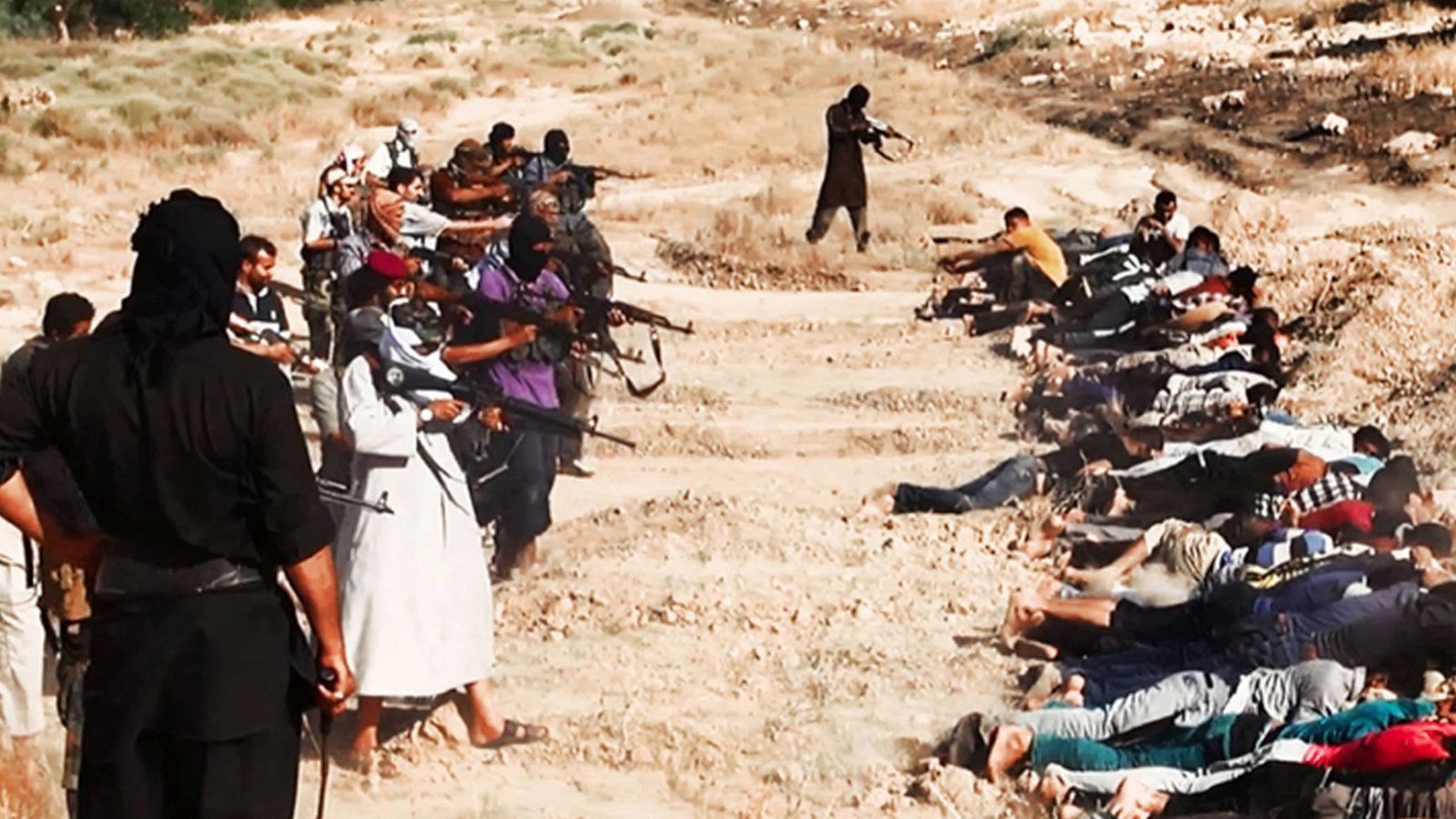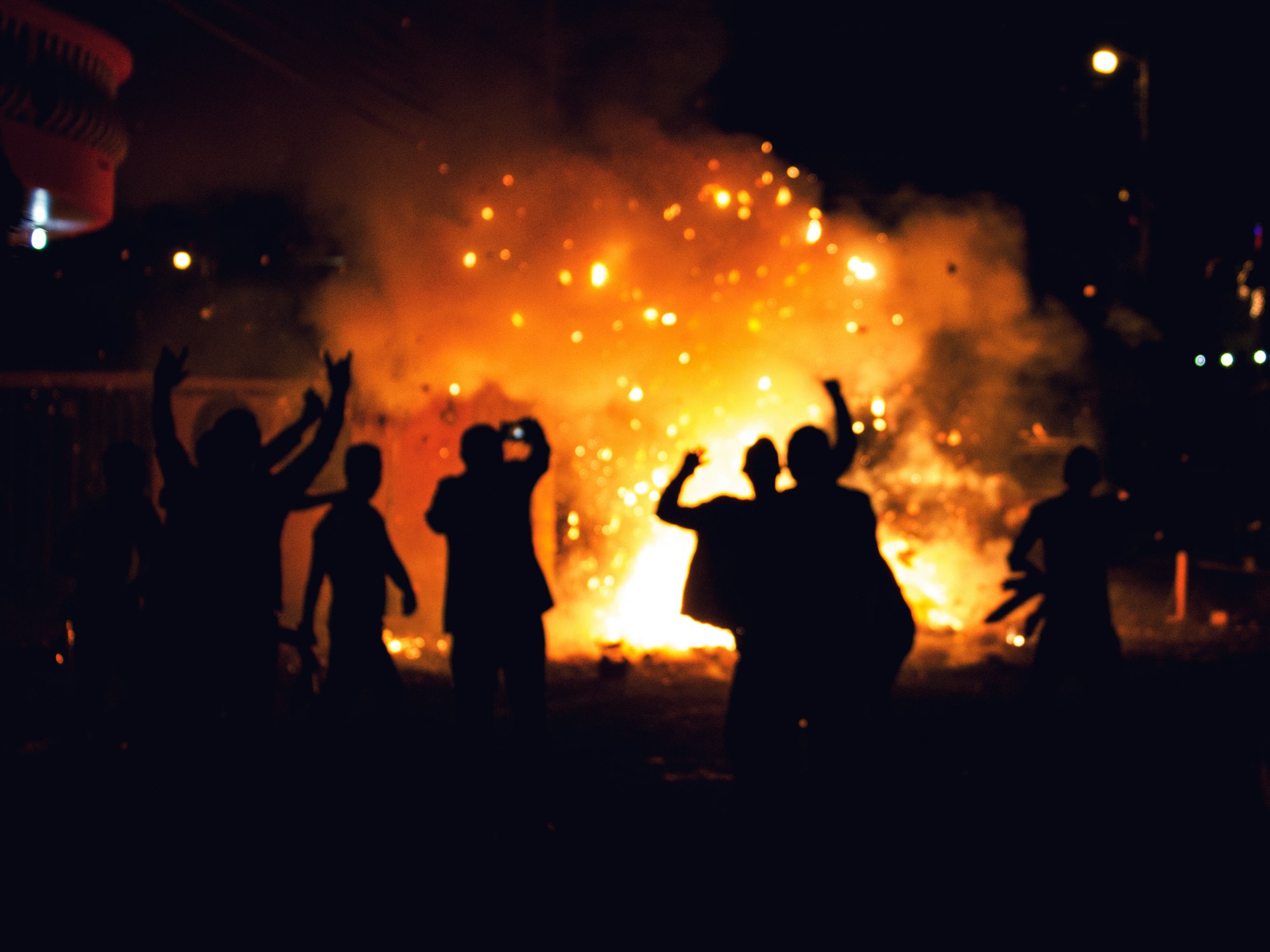So ‘Islamic State’ (ISIS) member Siddartha Dhar, who now calls himself ‘Abu Rumaysah al-Britani’, has released a 40 page ‘book’ describing life under the ‘Caliphate.
The document has been shared on social media by ISIS supporters as well as journalists, who have noted its “ridiculous” and “ludicrous” content.
You can read it here.
A generally solid rundown of its contents can be found at The Independent.
Its author, Dhar, was a member of the former al-Muhajiroun network run by Anjem Choudary and overseen by Omar Bakri Mohammed, who is currently facing terrorism charges in Lebanon, where he was exiled by the British government.
Dhar was intimately tied to Choudary and Bakri, having been a founding member of the al-Muhajiroun successor group, ‘Islam4UK.’
While he was still in the UK, he became well-known as an amplifier of ISIS’ message for Western Muslim audiences.
Utopia?
His document, ‘A Brief Guide to the Islamic State’ attempts to paint a picture of life under ISIS as a sort of ‘Islamic’ utopia. It has a whole chapter, for instance, called “Food in the Caliphate,” which contains graphic descriptions of the assortment of culinary delights available, including “sheesh kebab,” “shawarma,” “falafel sandwich,” and “fruity cocktails.”
Dhar goes on to claim that ISIS is rapidly building an attractive infrastructure, complete with sophisticated transport, plans to build new roads, and an education system providing opportunities to succeed in major professions like medicine and civil engineering.
ISIS residents, Dhar proclaims, can buy a variety of vehicles very cheaply, including electric bikes, which can be re-charged for free by plugging into “the Caliphate’s electric grid.”
Citizens of the Caliphate, the document essentially promises, will have every need taken care of — they will have homes and heating all provided for, and the chance to get a job of their dreams.
The document is, indeed, ludicrous, but many have missed its significance.
The Independent, for instance, quotes Charlie Winter — an ‘analyst’ from the Quilliam Foundation, a thick-tank which receives significant funding from a US pro-Republican neoconservative network close to the likes of homophobic racist Senator Ted Cruz. Winter thinks that the document is largely insignificant because it doesn’t have an ISIS logo on it.
If only this were true.
In reality, the release of this document points to a number of issues and questions.
ISIS propaganda
Firstly, it should not be assumed that the lack of an ISIS logo means the document is not sanctioned by ISIS. The secret ISIS documents obtained by Spiegel show that ISIS operates under a strict, and highly regimented command and control structure resembling “East Germany’s notorious Stasi domestic intelligence agency.” The idea that Dhar would be able to author and release the document “off his own back,” as Winter speculates, is difficult to take seriously.
It’s much more likely that the document has been released in this way as an ‘unofficial’ ISIS publication precisely to lend a veneer of authenticity to the document, as a ‘genuine testimonial’ from a British Muslim who has just joined the Caliphate, and is now purportedly imparting his direct experiences of life under ISIS.
Security services
Secondly, Dhar’s close connections to Anjem Choudary and Omar Bakri raise questions. As I reported exclusively for Middle East Eye, intelligence and other credible sources across both sides of the Atlantic have confirmed that Choudary and Bakri have been longtime MI5 informants. One senior terrorism lawyer who had frequently liaised with British security service officers in the administration of secret hearings for terror suspects, for instance, told me that Choudary had met MI5 many times.
Since the agency has never formally admitted to having liaised with either Choudary or Bakri, the connection between Dhar and Choudary raises legitimate questions as to how he managed to escape the country despite having been under investigation by Scotland Yard as a terror suspect, and released on bail on condition of handing in his passport.
This is not a case of stretched manpower. It’s a question of how Dhar — who if he was arrested as a terror suspect should have been placed on a terrorism watchlist upon his arrest — managed to bypass airport security. Either he was never placed on a terrorism watchlist, in which case, we must ask why; or he was, yet despite that was not flagged up by border control.
Neither possibility can be explained away as a mere case of insufficient manpower, and both raise questions as to whether his relationship to MI5-connected Anjem Choudary, an extremist who has inexplicably evaded terrorism charges despite a track record of incitement to violence, has something to do with this.
Unfortunately, the question cannot be answered without scrutiny of the British security protocols that went ‘awol’ prior to Dhar’s escape to ISIS.
Grievances
Thirdly, another element of the document that has so far been overlooked is its references to alleged US atrocities in Iraq and Syria against civilians, through bombing raids. This is a transparent attempt to appeal to widespread grievances about US and British foreign policies in the region, which — as I’ve documented elsewhere — have undoubtedly contributed to a colossal scale of civilian death in Iraq and Afghanistan alone (as many as 4 million people since 1990).
By appealing to that sense of grievance, the document seeks to position ISIS as an anti-imperialist entity, defending the interests of Muslim civilian populations from the barbaric West. Sadly, whatever barbarisms have been or are being committed by US and British forces, ISIS’ horrifying atrocities against innocent civilians — including tens of thousands of Muslims — have been well-documented based on testimony from Caliphate residents themselves, and courageous reporting from journalists deeply critical of Western foreign policy in the region.
False hope
Fourthly, the rest is clearly fantasy designed to entice a potential audience of vulnerable English-speaking Muslims who are already sympathetic to ISIS, by projecting the vision of an Islamic utopia.
It’s a patently false vision. The idea, for instance, that the ‘Caliphate’ has a functioning transnational electric grid which can be tapped at will for free is obvious fiction for anyone with even a semblance of understanding of the vast extent to which civilian infrastructure, including power stations, have been bombed to smithereens by all actors — Assad, anti-Assad rebels, ISIS, anti-ISIS rebels, and so on.
ISIS is hoping its readers are ignorant enough to swallow its propaganda based on the knee-jerk assumption that everything the Western media says about ISIS is a lie.
ISIS materialism
Fifthly, what is also revealing in the same vein is the entire focus of the document. There are no substantive theological references or justifications, no references to Islamic canonical texts. The document is not attempting to convince those who already reject ISIS’ twisted theology — but is aimed at those who, sympathetic to its professed goals, sceptical of Western reporting on ISIS, sceptical of Western foreign policies generally, might be nudged into believing that ISIS represents not a totalitarian fascist abomination, but an authentic utopian experiment.
The entire pitch is about the promise of a better life in this world, appealing not to spiritual sentiments or religious convictions, or even to a hunger for glory or meaning through martyrdom — but simply to material wants and needs. This reveals that the target audience is very specific: if you are already verging toward ISIS sympathy, are hungry, poor, and lack opportunities, here’s the utopia you always wanted — “no glass ceilings here” is Dhar’s implicit mantra.
Despite the truly ludicrous nature of its claims, ISIS is trying to demonstrate its attractiveness by offering ‘hope’ to English-speaking Muslims who feel so disenfranchised, disillusioned and isolated from their societies, that they might actually find this offer enticing. Hence, the chapter titled ‘Capitalism is dead,’ which is yet another transparent attempt to entice those understandably disaffected by the rampant failure of neoliberal austerity.
Given that nearly two-thirds of British Muslims of south Asian ethnic origin live in poverty, and are overrepresented in issues like unemployment, crime, bad housing, and health problems, this document appears to be the first step in a PR strategy to project itself as more than just a genocidal war machine. Here is a statement of possibility.
Empty state
Yet the document also reveals the current weakness of ISIS. By talking up how the ‘Caliphate’ has attracted talent from across the world in the form of qualified professionals, with a promise of a better life based on modern technologies, ISIS is hoping to fill its own skills vacuum.
It’s one thing to go around conquering. It’s quite another to retain control of territory indefinitely by delivering public services.
ISIS is privately concerned that it lacks the internal skills and talent to maintain the ‘state’ it purports to already be.
It knows how to kill indiscriminately, and to inflict unmitigated brutality as a mechanism of social control.
It has learnt well from Saddam’s Ba’athists, as well as from the horrors of the Iraq War.








